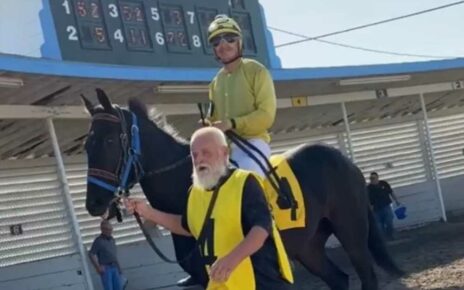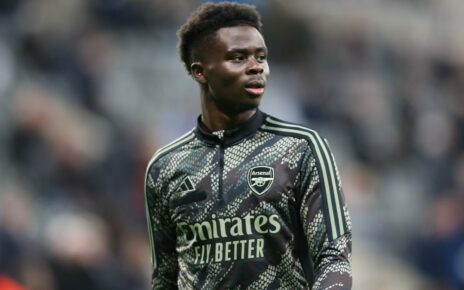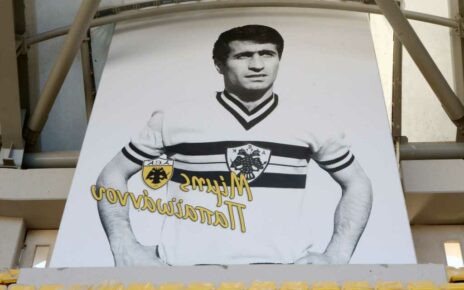By Chloe Saltau, Ben Glover and Ian Fuge
As International Women’s Day approaches, Australia’s female athletes and teams are front and centre in the national sporting conversation. Our women’s cricket team has just won an astonishing 13th world title, and the Matildas are about to host the FIFA Women’s World Cup, which promises to be the biggest event on Australian soil since the Sydney Olympics.
But who is the most influential woman in Australian sport? Not the greatest or the most successful, but the most influential.
The Sydney Morning Herald, The Age and Wide World of Sports have teamed up to choose the top 50 most influential women in Australian sport. To make this list, it wasn’t enough to be a champion sportswoman, although many are. From athletes to administrators, journalists to sports agents and sponsors, these women have made a difference. Some have taken a stand on issues that transcend sport, some made the decisions that determine where the money goes or what sports we see on TV, and others worked in the background to keep the major codes rolling along.
Our judges: Brooke Boney (Today entertainment presenter), Melissa Coulter Ryan (Sunday Age sports editor), Billie Eder (SMH sports reporter), Roz Kelly (WWOS sports presenter), Emily Patterson (wwos.com.au reporter), Georgina Robinson (SMH chief rugby reporter), Chloe Saltau (The Age sports editor), Zoe Samios (SMH/Age media reporter), Claire Siracusa (The Age sports producer), Kathryn Wicks (SMH associate editor).
How the judging worked: Each judge picked their own top 20, with votes apportioned in reverse order. So, No.20 was given one vote and No.19 two votes, and so on. From there, we compiled the top 50 based on total votes. Where two people finished with the same number of votes, they appear on our list in alphabetical order. Today, we unveil numbers 21 to 30, and we will publish 10 names per day culminating with the top 10 on Wednesday, International Women’s Day.
Our list will doubtless provoke debate, but we hope it also recognises the importance of women to sport in this country, and encourages sporting bodies and businesses to keep pushing for equality.
Donnell Wallam.Credit:Getty Images
30. Donnell Wallam (20 votes)
Netballer
The Queensland Firebirds and Australia star became the face of one of sport’s biggest stories in 2022 when her opposition to wearing Hancock Prospecting on her Diamonds uniform ended with Gina Rinehart pulling a $15 million sponsorship deal. Wallam’s strength in standing up for her beliefs and the Indigenous community in the face of massive pressure and scrutiny before the biggest moment in her career – her debut for Australia – was widely applauded and led to a wider conversation about athletes making principled stands. Brooke Boney
Christina Matthews.
29. Christina Matthews (20)
Administrator and former cricketer
The national wicketkeeper from 1984 to 1995 remains the most-capped Australian woman in terms of Test matches. Matthews has been the chief executive of the Western Australian Cricket Association since 2011 – the standout candidate among 34 applicants for the job. She has driven the change for equal gender representation in leadership positions ever since. She played an influential role in securing federal and state funding for the redevelopment of the WACA Ground which is due for completion in 2025. Kathryn Wicks
Ashleigh Gardner.Credit:Getty Images
28. Ashleigh Gardner (22)
Cricketer
A Muruwari woman, Gardner champions her First Nations heritage and is an excellent role model. She was just the third Indigenous Australian to play Test cricket and the first Indigenous woman to represent the nation at a world cup. Throughout her career, Gardner has been hailed for her leadership on Indigenous issues, both within the walls of Cricket Australia and beyond. Using her platform to create social change, Gardner also started the Ashleigh Gardner Foundation, which provides breakfast and sports kits for Indigenous children to encourage a healthy lifestyle and long-term education. Emily Patterson
Belinda Clark.Credit:Flavio Brancaleone
27. Belinda Clark (22)
Administrator and former cricketer
Insofar as winning goes, Clark, a former captain of Australia and right-hand batter, could write the book. Alongside an 83 per cent win rate as a captain at international level, including two world cups, she also guided NSW to five women’s national cricket league championships, moved to Victoria and won two with them. She was the first person to score a double century in an ODI and is the only woman to be honoured with a statue at the SCG. She was the chief executive of Women’s Cricket Australia before its merger with CA, and served in executive roles for decades. Kathryn Wicks
Katie Page.
26. Katie Page (25)
Businesswoman
Rugby league wouldn’t be where it is without Katie Page. The Harvey Norman CEO became the first woman to join the board of a major football code in Australia when elected to the NRL executive in 2004, and used her term to push for the rights and recognition of women in the game. She was the driving force behind the creation of the Women in League round and remains a major financial backer of the code. One of the most powerful and wealthiest businesswomen in the country, Page has spent millions supporting women in a variety of sports. Some see her as the most suitable eventual successor to Peter V’landys as ARL Commission chair. Roz Kelly
Emma McKeon.Credit:Getty Images
25. Emma McKeon (26)
Olympic swimmer
Australia’s most decorated Olympian epitomises the dedication needed for her craft and was a quiet achiever for much of her career. On top of her mounting individual achievements, McKeon inspires the nation’s love for competition and comradeship as one of the world’s most successful relay swimmers. She is widely recognised and idolised across generations. Emily Patterson
Moya Dodd.Credit:Janie Barrett
24. Moya Dodd (27)
Administrator and former Matilda
Dodd earns her place here not only for being one of the Matildas’ world cup pioneers – she was vice-captain of the 1988 team in the forerunner event – but for working tirelessly to leave the game better than she found it. Dodd was the first Australian, and among the first group of women, to be elected to the FIFA executive committee in 2013, working to ensure better investment in the women’s game. She has also served as vice president of the Asian Football Confederation. Most recently she served on Football Australia’s World Cup bid committee which successfully won the right to co-host this year’s tournament. Kathryn Wicks
Kylie Rogers.Credit:Arsineh Houspian
23. Kylie Rogers (28)
AFL executive
Rogers is the AFL’s executive general manager customer and commercial, which makes her the chief moneymaker for the richest sporting competition in Australia. Her portfolio covers every dollar the league makes from fans, advertisers and corporate sponsors, including licensing and retail, membership, hospitality, ticketing and events, digital marketing and media, and Marvel Stadium. She was the architect of the eight-year deal that landed entertainment giant Marvel as the naming rights holder of the AFL-owned stadium in Melbourne for a reported $70 million. As the force behind the AFL’s commercial prowess, Rogers is driven by innovation. “The way I see it, I have to be bold, I have to innovate, I have to take risks, so we can ensure we sustainably grow, so we’re continually pumping revenue into the community, into pathways and into the clubs,” she told The Australian Financial Review in 2018. Melissa Coulter Ryan
Anna Meares.Credit:Getty Images
22. Anna Meares (29)
Chef de mission and former Olympian
Meares, who won six medals across four Games, is the country’s most decorated Olympic cyclist and the only Australian to win individual medals at four separate Olympics. Though retired as an athlete, Meares will take on a crucial role as chef de mission for Australia at the 2024 Paris Olympics, where she will lead the nation’s delegation. Meares has spoken about the importance of the team environment for Olympic athletes and their success, and is aiming to create a haven for Australia’s competitors that will help them achieve their best. Claire Siracusa
Tanya Hosch.Credit:AFL Photos
21. Tanya Hosch (29)
Social activist and AFL executive
When the AFL and its 18 clubs belatedly apologised to Adam Goodes for the treatment that drove him from the game, Hosch was the key figure behind it. Hosch is the AFL’s executive general manager for inclusion and social policy, and was the first Indigenous person – and the second woman – to join the league’s executive. With a seat at a table traditionally dominated by white men, she has updated vilification rules, driven a new respect and responsibility policy, made it compulsory for clubs to have Indigenous liaison officers and advocated for Indigenous and female representation on club boards. Hosch is leading the AFL’s efforts to improve the experience of past and present Indigenous players after a series of racism scandals, while tackling the thorny issues of diversity at the AFL and its clubs. Chloe Saltau
- Read Part One here: 50-41
- Read Part Two here: 40-31
Most Viewed in Sport
Source: Read Full Article












